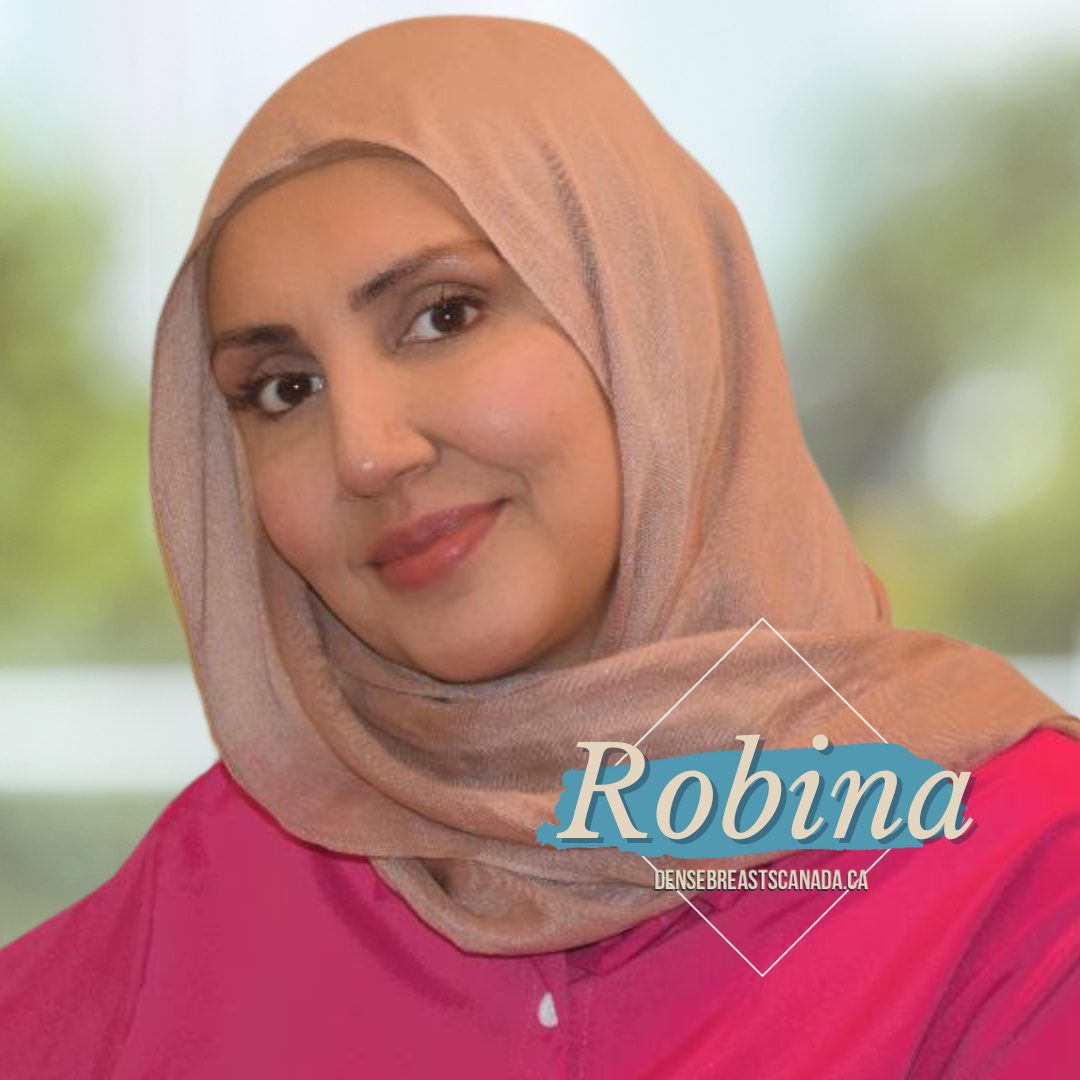Robina

In June 2023, just three months after adopting my daughter, at the age of 45, I was diagnosed with invasive ductal carcinoma (IDC), hormone receptor-positive and HER2-negative. It was a typical Thursday morning when I checked my biopsy results on the hospital portal. The news left me in complete disbelief.
For years, I had followed a strict routine of annual mammograms, starting at age 34 after my sister was diagnosed with breast cancer at 42. My January 2022 mammogram had been clear, but in January 2023, a suspicious spot appeared. At the same time, I discovered a palpable lump. The follow-up mammogram showed calcifications, and I was given a BIRADS 4A rating, which means a low chance of cancer (2-10%). I received these results the very day I was scheduled to travel to complete my adoption. When I returned to Canada, I had a biopsy which confirmed the cancer, as well as spread to my lymph nodes. There I was in the midst of what should have been a blissful and joyous time of my life, now facing a breast cancer diagnosis.
I had so many questions swirling in my mind. How could this cancer have gone undetected on my annual mammograms?
As I prepared for surgery, I was also navigating the overwhelming realities of new motherhood. During this time, I began researching my diagnosis and learned that I have dense breast tissue (Category D). Why hadn’t I been receiving supplemental screening, especially given my dense breasts and family history? Shouldn’t these factors have prompted more thorough monitoring? I can’t help but think that if I had been receiving annual ultrasounds, this cancer might have been detected earlier.
Cancer changed my life. It broke me physically, tested my mental limits, and scarred me emotionally. But as a single mom with a newly adopted daughter, I had no choice but to find the strength to keep going. Ultimately, this disease transformed me into a stronger mother, a more resilient woman, and a better version of myself.
I now want to help other women be better informed about their options and understand how factors like breast density and family history can affect their screening needs. It’s vital that we advocate for the care we deserve, which includes demanding the right screenings—because early detection truly saves lives.
To anyone diagnosed with cancer, may you find the strength to overcome this struggle and emerge stronger on the other side. 💖
DBC Note: Robina, we are very grateful to you for your willingness to share your story and the outreach work you are doing to educate other women. Your strength is inspiring. Robina’s blog can be read here https://cupofro.blog/
